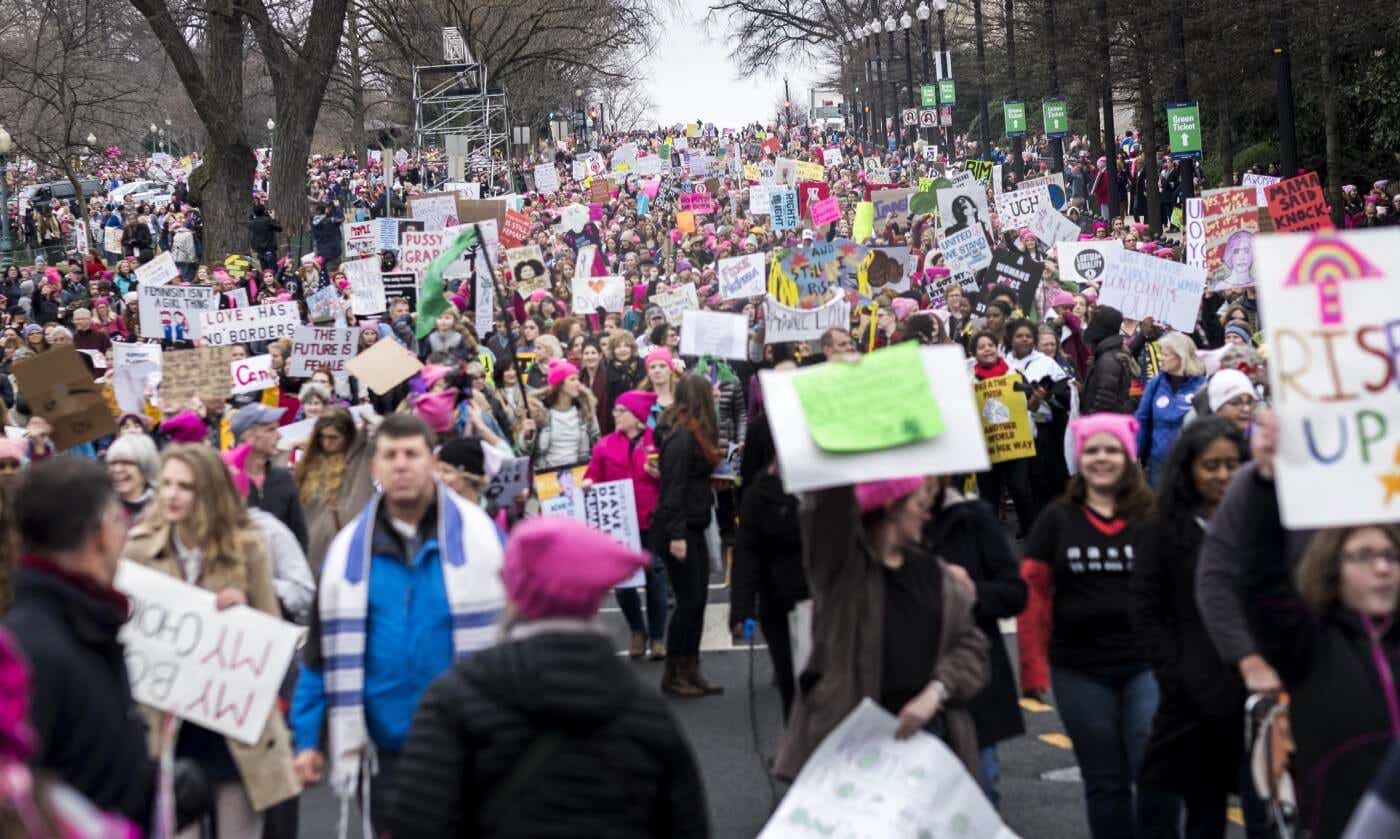Filmmaker Sara Wolitzky said that the women’s movement has a long way to go in terms of improving diversity, but maintained that no movement is perfect.
“You need to have these difficult conversations,” Wolitzky told Wake-Up Call in response to a question about diversifying the fight for equality.
“It’s never going to get better by ignoring these differences,” she added. “You need to talk across these differences.”
Wolitzky joined Wake-Up Call to discuss her directorial debut, Not Done: Women Remaking America, which explores the modern Women’s Movement and the struggle to make it intersectional to include all voices.
The documentary, which features changemakers like Shonda Rhimes and Gloria Steinem, sheds light on the rise in women-led campaigns, including The Women’s March. Formed in response to President Trump’s election in 2016, the organization was behind the largest single-day protest in U.S. history. But the group faced internal turmoil and criticism for being too focused on white women. Last year, three of its founding members stepped down amid allegations of anti-Semitism, and a new, bigger board took their place.
Since 2016, Wolitzky said the women’s movement overall has started to gain more awareness around the need to organize women in a way that emphasizes diversity in organizing and advocates for policies that address a wide variety of issues, including those that address race and sexuality.
“We’re not done getting there, but I think there’s at least more of that intention and more of that promise than there has been in the past,” she said. She emphasized how subsequent movements such as TIME’S UP and Black Lives Matter have become interconnected — and they also happen to be led by women.
After being initially delayed by the pandemic, Not Done premieres on PBS on October 27. It is the first recipient of Verizon’s Future Fund, which aims to support new and emerging female talent.
Despite the struggle of having to finish a film remotely in the middle of several ongoing crises, Wolitzky said the delay allowed her to incorporate more of Black Lives Matter protests, particularly through the lens of Black transgender people.
“It helped reinforce the kind of story we were already telling,” she said, noting that the film already featured Black Lives Matter before renewed racial justice protests following the death of George Floyd in May.
The film was also uniquely created by an all-female and non-binary production crew, a decision that was made as part of a concerted effort to be more inclusive.
“Women are more collaborative — and usually, there’s less ego involved and I think that helps on a film set,” Wolitzky said.
This interview originally appeared on Medium.









